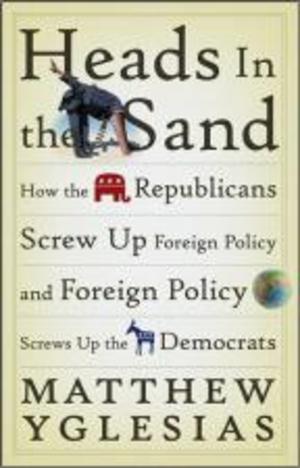"Major combat operations in Iraq have ended. In the battle of Iraq, the United States and our allies have prevailed." - President Bush, 5/1/03
"I believe that success will be fairly easy." - Senator McCain, CNN, 9/24/02
It has been five years since President Bush declared victory in the battle for Iraq. Today, with the same number of troops on the ground, 3,900 more US casualties, and no clear progress in sight, Senator McCain has tried to distance himself from the original Bush Administration strategy. McCain claims he disagreed with President Bush on how the war should be fought, but five years ago John McCain was lined up squarely behind the President's ill-judged, reckless approach. Senator McCain argued that war would be "fairly easy" and that we would be "welcomed as liberators." He dismissed concerns over a potential civil war and agreed with President Bush that we had enough troops to secure the country. As things have gone badly, and public support has faded, McCain has called for more of the same - more troops, more time. His ill-defined approach says we cannot afford to fail, but fails to explain how to succeed. The reality is that there is little difference between John McCain and George Bush on Iraq.
John McCain Believed that the War Would Be Easy
"And I believe that the success will be fairly easy." [CNN, Larry King Live, 9/24/02]
"There's no doubt in my mind that once these people are gone that we will be welcomed as liberators." [MSNBC, Hardball, 3/24/03]
"I think the president has led with great clarity and I think he's done a great job leading the country." [MSNBC Hardball, 4/23/03]
"I'm a great admirer of Rumsfeld." McCain a year later said "I have great respect for Secretary Rumsfeld." [MSNBC Hardball, 4/23/03. Charlie Rose, 4/19/04]
"There's not a history of clashes that are violent between Sunnis and Shias. So I think they can probably get along." [MSNBC Hardball, 4/23/03]
McCain described Iraq as a "magnificent victory." McCain said "And I think it's important to sort it all out. But, to translate that as the Democrats are trying to do, and some kind of attack against this magnificent victory." [MSNBC Hardball, July 23, 2003]
April 2003: McCain was asked, "at what point will America be able to say the war was won?" He responded, "Tikrit, Saddam Hussein's hometown, I would imagine there'll be some die hards there that, but I think that we, it, it's clear that the end is, is, is very much in sight." [ABC, "Good Morning America," 4/9/03]
"But the fact is I think we could go in with much smaller numbers than we had to do in the past. But I don't believe it's going to be nearly the size and scope that it was in 1991." [CBS Face the Nation, 9/15/02]
McCain rejected calls to get more international troops on the ground in Iraq. "I think that the only military presence required right now would be American and British." [MSNBC Hardball, 4/23/03]
Senator McCain Has Consistently Misjudged the Situation in Iraq and Presented Rosy Scenarios Although He Now Claims that He Always Opposed the Strategy
"I`m the guy that opposed Rumsfeld and supported this strategy, which I think would help them make a judgment, would help them make a decision about my judgment." [MSNBC, Hardball, December 19, 2007]
"We've seen a number of signs of progress, including that of the capabilities of the Iraqi military, agreement with the Sunnis as framing the constitution, a decrease in suicide bombers from Iraqis and more and more coming in from the outside. By the way, that's the good news and bad news piece of it. And there is a legitimacy to the Iraqi government that, frankly, the government of South Vietnam never had. So, I think that there is progress." [CNN, Larry King Live, 6/28/05]
"We've got to show some success there, and I think we can, and I think we have, with --Elections are coming up on December 15th, where they'll have their own government functioning, and we are showing some progress in training and equipping the Iraqis." [FOX News, Chris Wallace Show, 11/6/05]
Exactly one year before violence in Iraq peaked: "Overall, I think a year from now, we will have made a fair amount of progress if we stay the course." [The Hill, 12/8/05]
As Iraq was heading into the peak levels of violence of 2006: "We are making progress. The formation of a government is helpful. We are training the Iraqi troops. There are parts of Iraq that are well under control and very peaceful. So it's a mixed bag here." [CNN, Larry King, 5/24/2006]
While violence in Iraq was still at its peak: "There are neighborhoods in Baghdad where you and I could walk through those neighborhoods, today." [Bill Bennett's Morning in America, 3/26/07]


